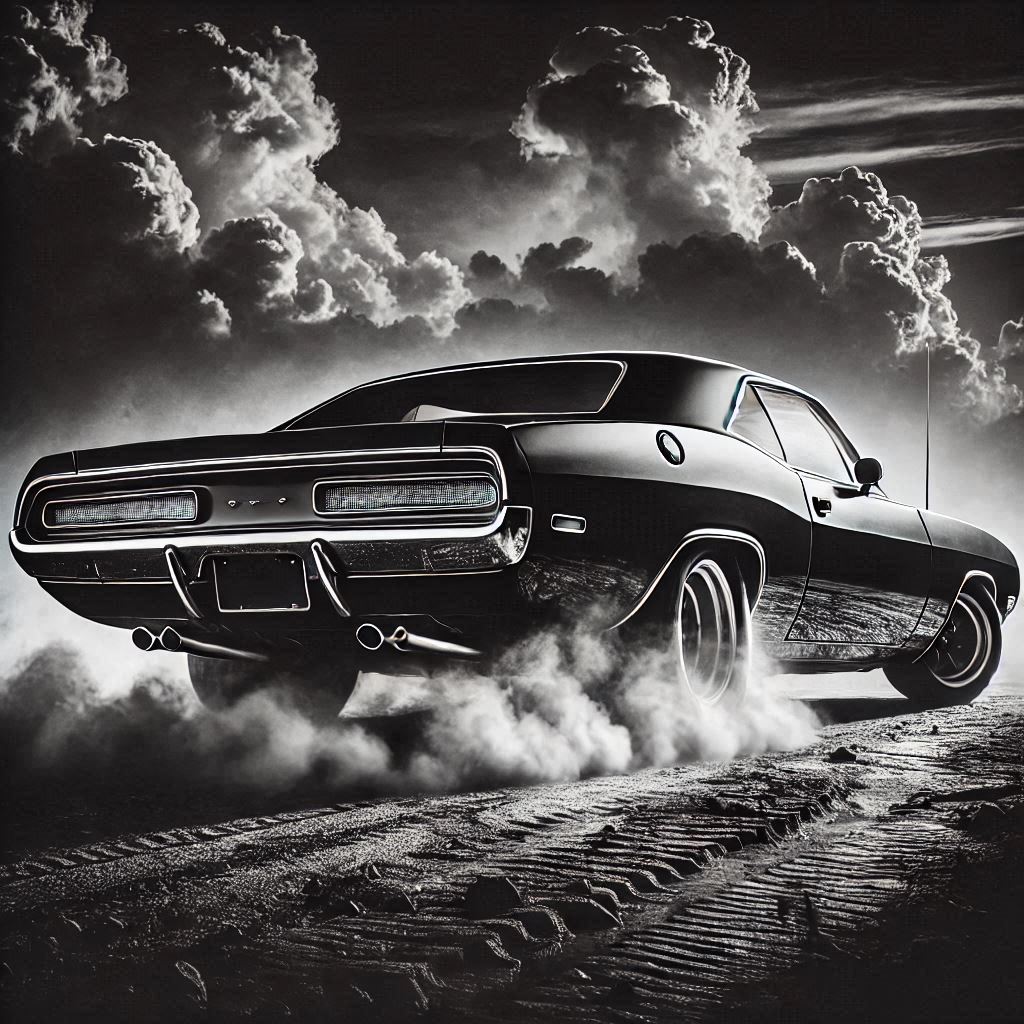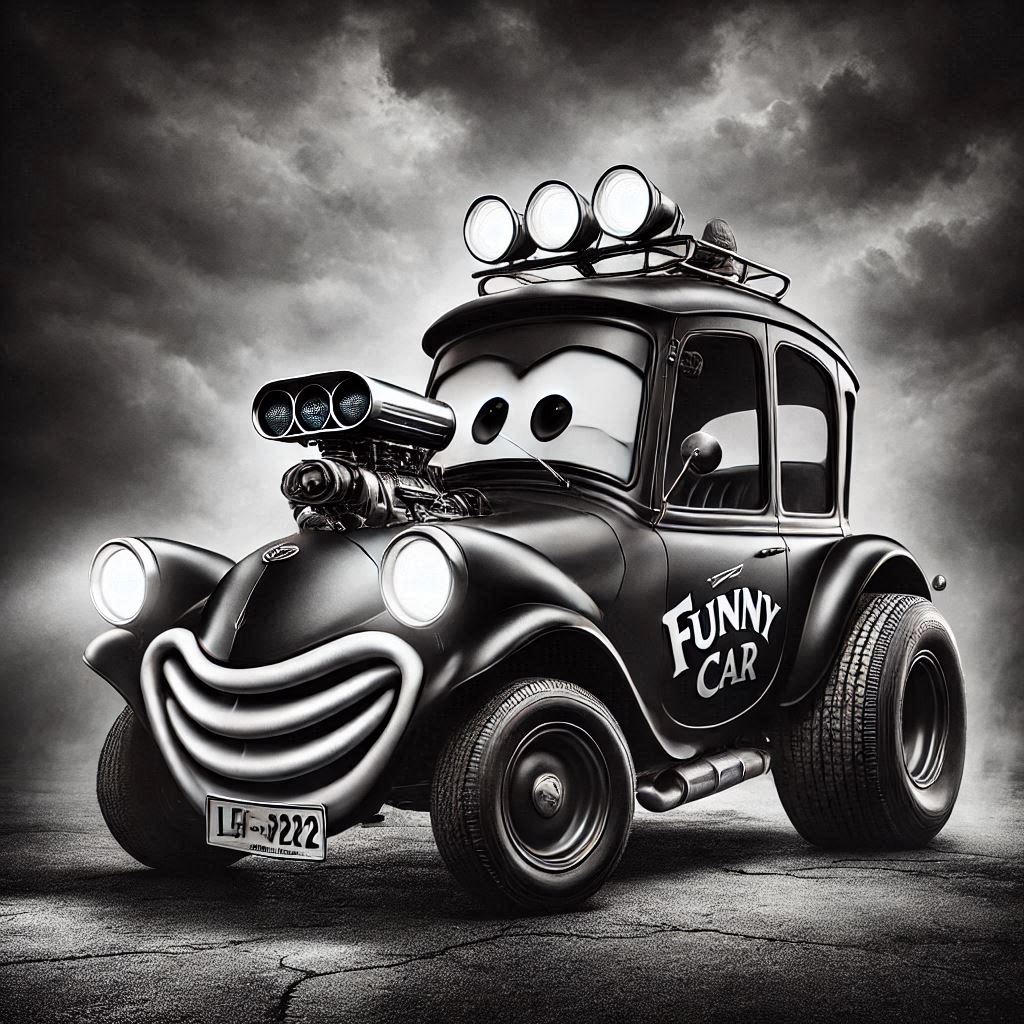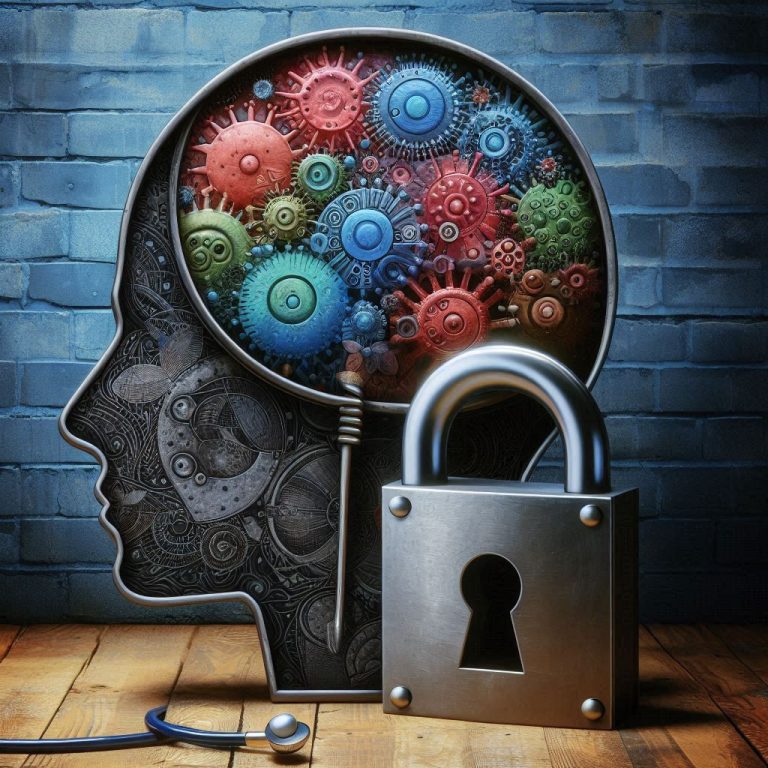Identity Cars Psychology And The Powerful Identifying Symbol
The Psychology of Cars
Car Psychology
Automobiles have evolved from mere modes of transportation to significant cultural artifacts that influence and reflect our identities, emotions, and societal values. From the first time we learn to drive to the cars we choose as adults, our relationship with vehicles is deeply intertwined with our psychological development.

The Emotional Bond with Automobiles
Car as a Status Symbol
In many cultures, cars are more than just a mode of transportation; they represent a symbol of status and success. Owning a luxurious or high-performance car can evoke feelings of pride and accomplishment. This emotional attachment often stems from societal norms that equate material possessions with personal worth.
The Car as an Extension of Identity
Drivers often view their vehicles as extensions of their own personalities. For example, someone who values speed and performance might gravitate towards sports cars, while an environmentally conscious individual might prefer an electric vehicle. This connection between car choice and self-identity underscores the deep psychological impact vehicles have on their owners.

Psychological Factors Influencing Car Purchase Decisions
Influence of Advertising and Marketing
Automobile manufacturers invest heavily in advertising to create a compelling image of their brands. These marketing strategies tap into the psychological desires of potential buyers, such as the need for safety, prestige, or adventure. Effective advertising can significantly influence a consumer’s decision-making process when purchasing a car.
Role of Nostalgia
Nostalgia also plays a critical role in car purchasing decisions. For some, buying a specific model can evoke memories of their childhood, family trips, or even their first car. This emotional connection can drive consumers to choose certain brands or styles over others, even if they come with a higher price tag.

The Impact of Car Design on Human Behavior
Color Psychology
The color of a car can influence the owner’s mood and behavior. For instance, red cars are often associated with energy and excitement, while black cars convey elegance and sophistication. Car manufacturers take these psychological effects into account when designing and marketing their vehicles.
Ergonomics and Comfort
The design of a car’s interior can greatly affect a driver’s comfort and stress levels. Features such as ergonomic seats, intuitive controls, and adequate legroom contribute to a more pleasant driving experience. A well-designed car interior can reduce fatigue and enhance the overall well-being of the driver and passengers.

How Car Psychology Changes as We Grow Older
Early Adulthood – Freedom and Adventure
For many young adults, the first car represents newfound freedom and the excitement of independence. The choice of car during this stage is often driven by a desire for adventure and exploration. The psychological attachment to the vehicle is closely tied to the experiences and memories created during this formative period.
Midlife – Practicality and Comfort
As individuals enter their midlife years, their priorities often shift towards practicality and comfort. Family needs and professional responsibilities become more significant factors in car selection. The psychological focus moves towards reliability, safety, and the ability to accommodate growing families.
Later Years – Nostalgia and Legacy
In later years, nostalgia plays an even more prominent role in car psychology. Many older adults seek vehicles that remind them of their youth or past experiences. Additionally, there is often a desire to leave a legacy for future generations, with some choosing classic or collectible cars to pass down to their children or grandchildren.

The Media’s Influence on Car Psychology
Shaping Perceptions through Advertising
Media plays a significant role in shaping our perceptions of cars. Through carefully crafted advertisements, car manufacturers create aspirational images that tap into our psychological desires. Picture a commercial showing a sleek sports car speeding down an open road, with a tagline that promises freedom and exhilaration. These images can instill a sense of longing and excitement, making us associate certain car brands with specific lifestyle ideals.
The Power of Visual Storytelling
Television and online ads often use visual storytelling to connect emotionally with the audience. A family enjoying a road trip in a spacious SUV or a professional arriving at a high-profile event in a luxurious sedan can evoke feelings of warmth, success, and prestige. By telling these compelling stories, media can influence our emotional connections with cars and shape our purchasing decisions.

Media Portrayals and Gender Stereotypes
The media also reinforces gender stereotypes through car advertisements. Men are often depicted driving powerful, high-performance vehicles, emphasizing themes of speed and control. In contrast, women are frequently shown driving practical, family-oriented cars, highlighting safety and comfort. These portrayals can perpetuate societal expectations and influence how individuals of different genders perceive and choose their vehicles.
Challenging Stereotypes
However, there’s a growing trend in media to challenge traditional gender stereotypes. More advertisements now feature women driving sports cars and men opting for family-friendly vehicles. By presenting a more diverse and inclusive range of drivers, media can help break down gender norms and encourage people to make car choices based on personal preferences rather than societal expectations.

The Impact of Celebrity Endorsements
Celebrities and influencers have a profound impact on car psychology. When a famous actor or athlete endorses a particular car brand, it can create a strong association between the car and the desirable traits of the endorser. For instance, seeing a beloved movie star driving a luxury car can make us believe that owning the same car will elevate our status and bring us closer to that celebrity lifestyle.
Social Media and Influencer Culture
In the age of social media, influencers play a crucial role in shaping car perceptions. Influencers often share their experiences with cars, whether it’s a review of the latest model or a glamorous road trip in a stylish vehicle. Their followers, who trust their opinions, may be swayed by these endorsements, further emphasizing the psychological impact of media on car choices.
Media Coverage of Automotive Innovations
The media also influences our perceptions of cars through coverage of automotive innovations. News articles and documentaries about electric vehicles, autonomous driving technology, and sustainable transportation can shift public opinion towards these advancements. By highlighting the benefits and potential of these innovations, media can create a positive psychological association with environmentally friendly and technologically advanced cars.
Creating Awareness and Acceptance
Positive media coverage can raise awareness about the advantages of new automotive technologies and encourage acceptance among consumers. As people become more informed about the benefits of electric vehicles and self-driving cars, they are more likely to consider these options, reflecting a broader psychological trend towards sustainability and technological progress.

The Influence of Families on Car Psychology
Prioritizing Safety and Reliability
When it comes to family cars, safety and reliability take center stage. Parents want to ensure the utmost protection for their loved ones while on the road. This psychological need drives families to prioritize vehicles with advanced safety features, high safety ratings, and dependable performance. The assurance that a car can safeguard against potential dangers becomes a critical factor in their decision-making process.
Advanced Safety Features
Families are often drawn to cars equipped with the latest safety technologies, such as collision avoidance systems, lane-keeping assist, and adaptive cruise control. These features provide an added layer of security and peace of mind, addressing the psychological need for protection and risk mitigation.
Emphasizing Space and Comfort
A family’s car is more than just a mode of transportation; it’s a mobile extension of their home. As such, space and comfort become paramount considerations. The need to accommodate children, pets, and various belongings influences families to choose larger vehicles like SUVs and minivans that offer ample space and versatility.

Ergonomics for Everyone
The design of family cars often focuses on ergonomics and ease of use for all passengers. Features like easy access to rear seats, adjustable seating configurations, and child-friendly amenities contribute to a more comfortable and stress-free experience for the entire family. This emphasis on comfort reflects the psychological desire for convenience and harmony during travel.
Fostering Connection and Togetherness
Family cars play a significant role in fostering connection and togetherness. Whether it’s weekend getaways, daily school runs, or holiday road trips, these shared experiences create lasting memories and strengthen family bonds. The car becomes a cherished space where stories are shared, laughter resonates, and adventures unfold.
The Road Trip Phenomenon
Road trips, in particular, hold a special place in family car psychology. The sense of adventure, spontaneity, and quality time spent together make road trips an enduring tradition for many families. The psychological benefits of these journeys include building trust, enhancing communication, and creating a sense of unity.

Balancing Practicality with Aspirations
While practicality is a significant factor in family car choices, families also aspire to own vehicles that align with their values and lifestyle. This balance between practicality and aspiration can influence decisions in various ways, from choosing eco-friendly options to selecting models that reflect a sense of style and adventure.
The Green Family
As environmental awareness grows, many families are gravitating towards eco-friendly vehicles, such as hybrids and electric cars. This choice reflects a collective psychological shift towards sustainability and a desire to leave a positive legacy for future generations. The decision to go green is often motivated by the family’s commitment to environmental responsibility and conscious consumerism.

The Psychology of a Car Hoon
Thrill-Seeking and Adrenaline
Car hoons, often characterized by their aggressive driving and high-speed antics, are driven by a strong need for thrill and adrenaline. For many hoons, the sensation of pushing a car to its limits provides an exhilarating rush that can become addictive. This need for excitement often overrides considerations of safety and legality, leading to reckless behavior on the road.
The Thrill of Speed
The psychology behind the love of speed is complex. For some, it’s the sheer joy of feeling the power and acceleration of a car, the sensation of being in control of a powerful machine. For others, it’s about breaking free from the constraints of everyday life and experiencing a sense of liberation and autonomy.
Social Identity and Group Dynamics
Car hooning is often a social activity, with hoons forming tight-knit groups that share a passion for cars and risky driving. These groups provide a sense of belonging and identity, reinforcing the behavior and attitudes associated with hooning. The camaraderie and peer approval within these groups can further encourage reckless driving.

Peer Pressure and Influence
Within hooning circles, peer pressure and the desire to impress others can play a significant role. The need to prove oneself and gain respect within the group can lead individuals to engage in increasingly dangerous stunts. This social dynamic creates a feedback loop where risky behavior is rewarded and perpetuated.
Rebellion and Defiance
For many hoons, driving recklessly is an act of rebellion and defiance against societal norms and authority. The thrill of breaking the rules and evading law enforcement adds an element of danger and excitement to their actions. This rebellious mindset is often rooted in a desire to assert individuality and resist conformity.
The Symbolism of the Car
The car itself can symbolize freedom, power, and resistance. For hoons, their vehicles are not just transportation but expressions of their defiance and nonconformity. Modifying cars to enhance performance and aesthetics is a common practice, further personalizing their machines and reinforcing their identity as rebels.

The Need for Validation
While thrill-seeking and rebellion are primary motivators, car hoons also seek validation and recognition. This need for validation can manifest in various ways, such as seeking attention from onlookers, gaining followers on social media, or earning a reputation within their community. The pursuit of validation often drives hoons to engage in increasingly risky behavior to maintain their status.
Social Media and the Hoon Culture
In the digital age, social media plays a significant role in the hoon culture. Platforms like YouTube and Instagram allow hoons to showcase their exploits to a broader audience, gaining followers and admiration. This visibility can create a cycle of validation where hoons continue to perform dangerous stunts for likes and shares, further reinforcing their behavior.
Conclusion For The Drive
The psychology of cars is a multifaceted and evolving field that reflects the intricate relationship between humans and their vehicles. From the emotional bonds formed in early adulthood to the practical considerations of midlife and the nostalgic connections in later years, our relationship with cars is a dynamic journey.
Understanding these psychological aspects can provide valuable insights into consumer behavior, marketing strategies, and the design of future automobiles. As we continue to embrace new technologies and sustainable practices, the psychological impact of cars will undoubtedly remain a significant aspect of our lives.
Media wields considerable power in shaping our psychological perceptions of cars. Through advertising, gender portrayals, celebrity endorsements, and coverage of innovations, media influences how we view and choose our vehicles. By understanding these influences, we can make more informed and conscious decisions about our car preferences, free from societal pressures and stereotypes. As media continues to evolve, its impact on car psychology will remain a significant aspect of our relationship with automobiles.
The context of families is a multifaceted dynamic that encompasses safety, comfort, connection, and aspirations. Families seek vehicles that can provide reliable protection, ample space, and a comfortable environment for all passengers. These choices are influenced by the desire to create lasting memories, foster togetherness, and align with their values. Understanding these psychological factors helps us appreciate the profound impact that family considerations have on car preferences and the broader automotive market.
The psychology of a car hoon is a multifaceted blend of thrill-seeking, social identity, rebellion, and the need for validation. Understanding these psychological drivers provides insight into why individuals engage in such risky behavior and how it is perpetuated within their communities. Addressing the underlying motivations and providing alternative outlets for thrill-seeking and social connection may be key to reducing dangerous hooning activities.
Join the Discussion
The psychology of cars is a deeply personal and evolving topic, influenced by our experiences, emotions, and societal trends.








I’m really impressed with your writing talents and
also with the layout on your weblog. Is that this a paid
subject matter or did you customize it yourself? Anyway stay up
the excellent quality writing, it is rare to see a
nice blog like this one nowadays. Madgicx!